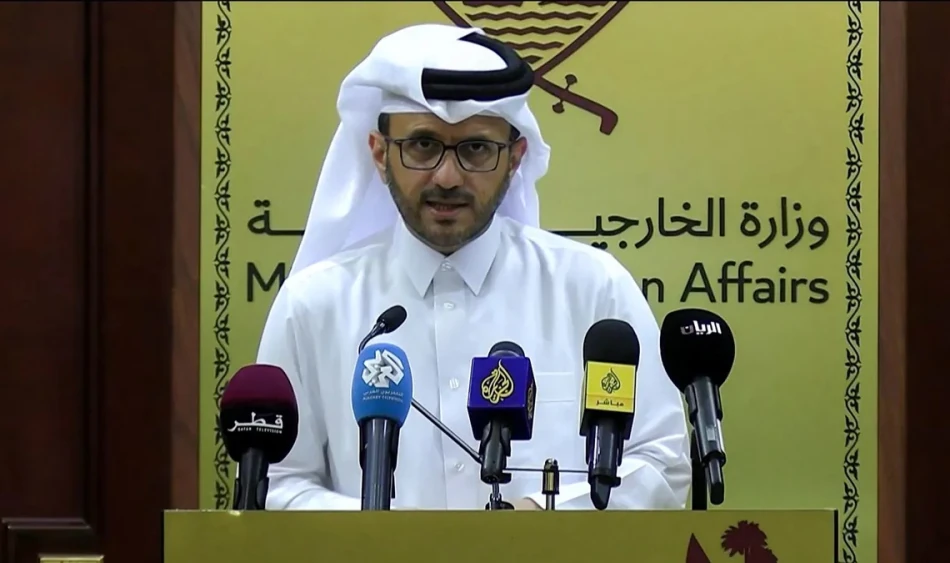
Qatar Vows Firm Stance Against Israel's Reckless Behavior, Safeguarding Regional Security
Qatar Condemns Alleged Israeli Strike on Hamas Officials in Doha as Sovereignty Violation
Qatar has issued its strongest condemnation of what it calls a "cowardly Israeli attack" targeting residential compounds housing Hamas Political Bureau members in Doha, marking a dramatic escalation that could reshape Middle Eastern diplomatic dynamics and threaten Qatar's carefully maintained role as a regional mediator.
Immediate Response and Security Measures
The Qatari Foreign Ministry confirmed that security forces, civil defense teams, and specialized agencies immediately responded to the incident, implementing necessary procedures to contain its aftermath and ensure the safety of residents and surrounding areas. The government emphasized that investigations are underway at the highest levels, with additional details to be released as they become available.
Diplomatic Implications for Regional Mediation
This incident strikes at the heart of Qatar's diplomatic strategy, which has positioned the Gulf state as a crucial intermediary between Hamas and international partners, including the United States and Israel. Qatar has historically hosted Hamas leadership while simultaneously maintaining diplomatic ties with Western nations, a delicate balance that has proven valuable during ceasefire negotiations and hostage release talks.
The alleged attack on Qatari soil represents a significant challenge to this mediation role, potentially forcing Doha to recalibrate its approach to regional diplomacy or risk appearing ineffective in protecting those under its diplomatic umbrella.
Historical Context of Qatar's Hamas Relations
Qatar's relationship with Hamas dates back over a decade, with the emirate providing both financial support to Gaza and political sanctuary to Hamas officials. This arrangement has drawn criticism from regional rivals, particularly Saudi Arabia and the UAE, but has been tacitly accepted by the United States due to Qatar's utility as a communication channel.
The presence of Hamas officials in Doha has previously facilitated indirect negotiations, including recent efforts to secure hostage releases and temporary ceasefires in Gaza. Any disruption to this arrangement could complicate future diplomatic initiatives.
Regional Security Calculations
If confirmed as an Israeli operation, this incident would represent a significant expansion of Israel's operational reach into the territory of a Gulf state that hosts major U.S. military installations. The Al Udeid Air Base, home to U.S. Central Command's forward headquarters, underscores the strategic sensitivity of any military action on Qatari soil.
This development could force other Gulf states to reassess their own security arrangements and diplomatic positions, particularly as regional tensions continue to escalate following the October 7 attacks and subsequent Gaza conflict.
Economic and Investment Implications
Qatar's position as a stable investment destination and major liquefied natural gas supplier could face scrutiny if the security situation deteriorates. The emirate has invested heavily in projecting an image of stability and neutrality, factors that have attracted significant international investment and positioning for events like the 2022 World Cup.
Energy markets may monitor developments closely, given Qatar's role as a major LNG supplier to European and Asian markets. Any perception of increased regional instability could influence energy pricing and supply security considerations.
Broader Middle Eastern Dynamics
This incident occurs against the backdrop of an already volatile regional situation, with ongoing conflicts in Gaza, tensions between Iran and Israel, and complex proxy relationships throughout the Middle East. Qatar's response will likely influence how other regional actors position themselves in this evolving landscape.
The emirate's emphasis on sovereignty and international law in its condemnation reflects broader concerns among smaller Gulf states about maintaining their independence and territorial integrity amid great power competition and regional conflicts.
Most Viewed News

 Sara Khaled
Sara Khaled






